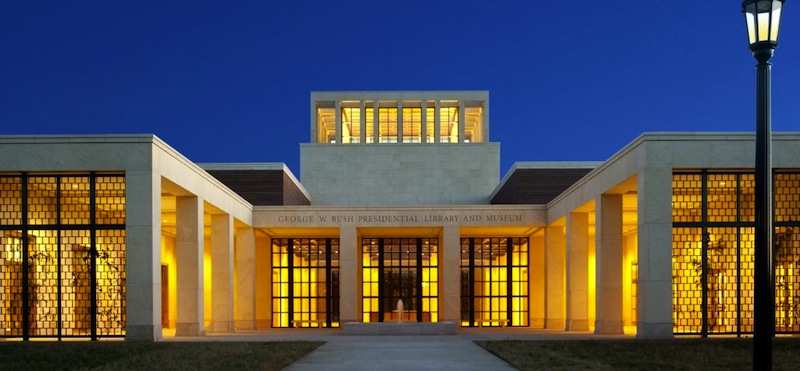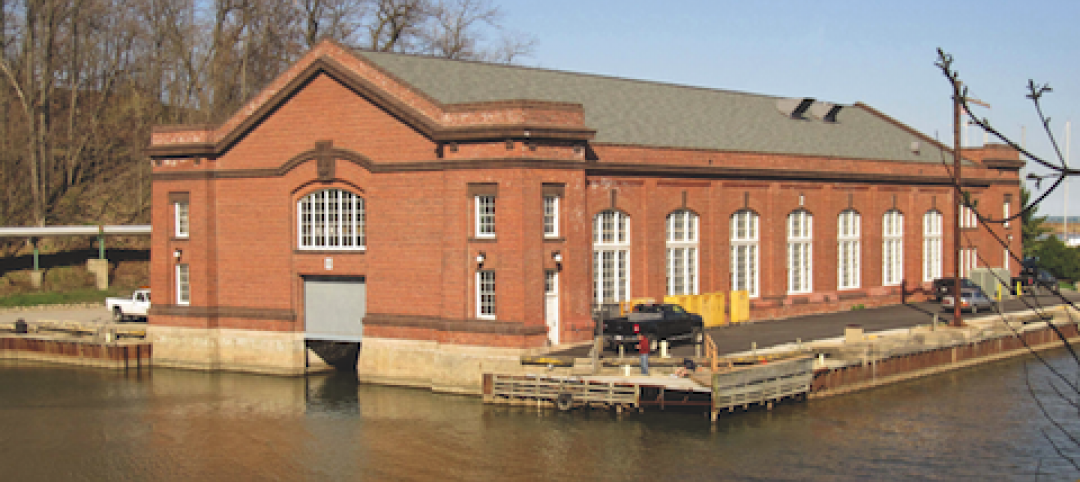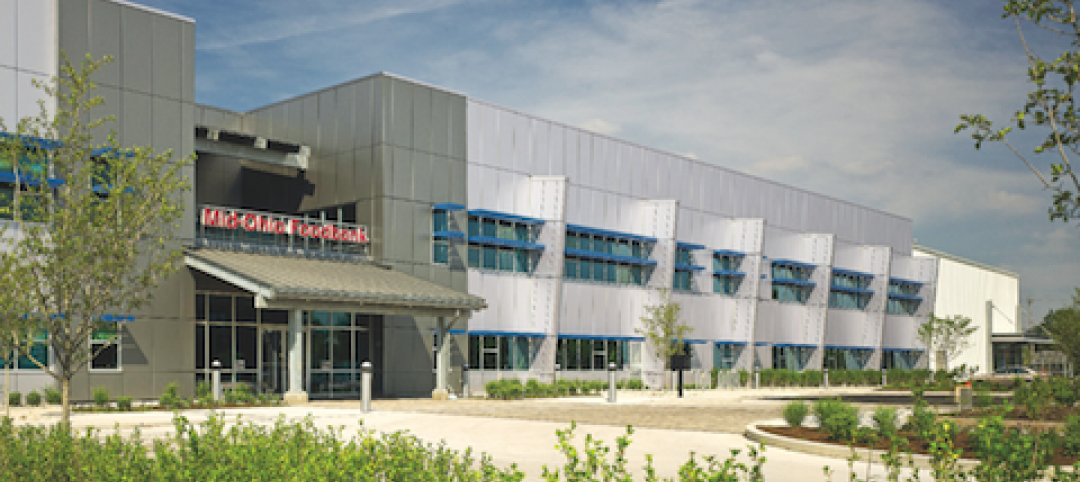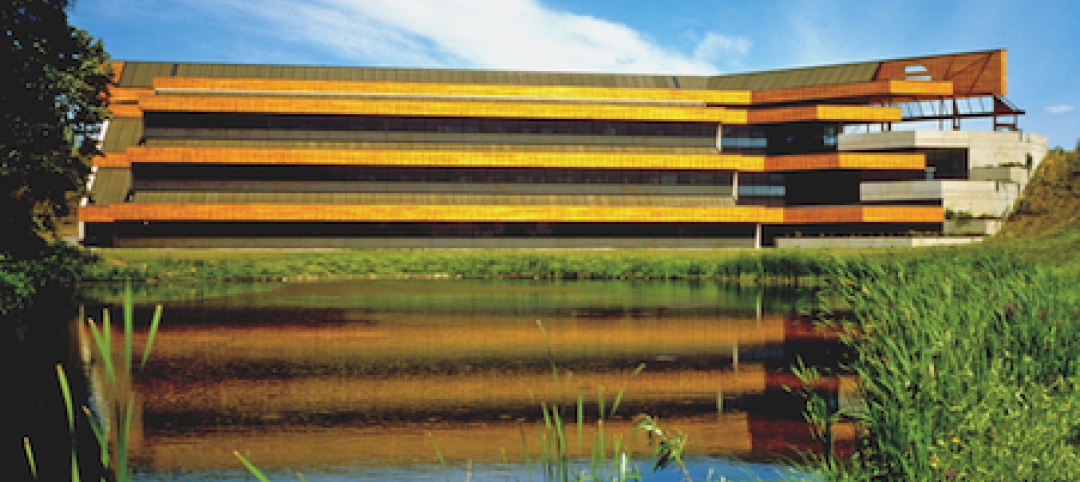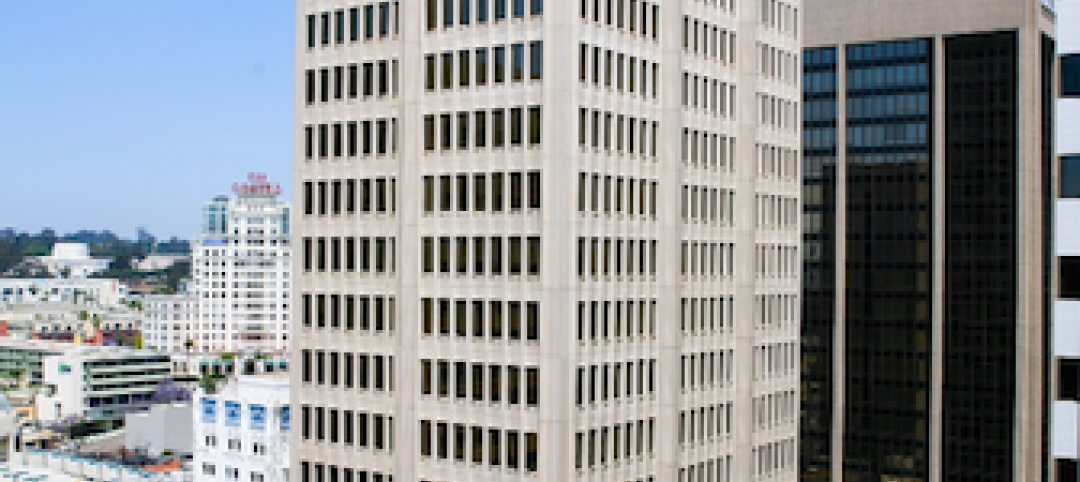The George W. Bush Presidential Center announced today it has earned Platinum certification by the U.S. Green Building Council’s Leadership in Energy and Environmental Design (LEED) program. The Bush Center is the first presidential library to achieve LEED Platinum certification under New Construction (v2009).
“As we approach the Bush Center’s April 25 dedication, we are proud to be recognized for our emphasis on sustainable building design,” said Mark Langdale, President of the George W. Bush Presidential Center. “The Bush Center and our ongoing work are a reflection of the principles that guided President and Mrs. Bush in their public service, including their longstanding commitment to conservation and caring for the land.”
The LEED Green Building Certification System encourages the use of designs, materials and systems that are sustainable, energy efficient and reduce a facility’s impact on the environment and human health. The Bush Center features green roofing systems to reduce heating and cooling demands, solar panels for producing electricity and hot water, building materials sourced from the region to lower transportation impacts, and rainwater recycling that will meet 50 percent of the irrigation needs of the native Texas landscaping.
Regionally sourced building materials used in the Bush Center include Texas Cordova cream limestone from Central Texas, Permian sea coral limestone from near the Bushes’ hometown of Midland, Texas, stained pecan wood interior paneling, and Texas mesquite hardwood floors.
A 15-acre urban park surrounds the Bush Center and allows visitors to experience a distinctive, native Texas landscape in the heart of a major city. The project restored the land’s native habitat by planting more than 70 percent of the site, including more than 900 trees, 40 of which were transplanted from the Bushes’ Prairie Chapel Ranch in Crawford, Texas. The Bush Center’s landscaping includes a prairie and savannah planted with five drought-tolerant grasses, and a wildflower meadow, featuring Texas wildflowers such as bluebonnets.
For more information on the Bush Center’s LEED features, please see the attached fact sheet, or visit the Bush Center online at www.bushcenter.org.
Related Stories
| Oct 12, 2010
Building 13 Naval Station, Great Lakes, Ill.
27th Annual Reconstruction Awards—Gold Award. Designed by Chicago architect Jarvis Hunt and constructed in 1903, Building 13 is one of 39 structures within the Great Lakes Historic District at Naval Station Great Lakes, Ill.
| Oct 12, 2010
Full Steam Ahead for Sustainable Power Plant
An innovative restoration turns a historic but inoperable coal-burning steam plant into a modern, energy-efficient marvel at Duke University.
| Oct 12, 2010
From ‘Plain Box’ to Community Asset
The Mid-Ohio Foodbank helps provide 55,000 meals a day to the hungry. Who would guess that it was once a nondescript mattress factory?
| Oct 11, 2010
HGA wins 25-Year Award from AIA Minnesota
HGA Architects and Engineers won a 25-Year Award from AIA Minnesota for the Willow Lake Laboratory.
| Oct 11, 2010
MBMA Releases Fire Resistance Design Guide for metal building systems
The Metal Building Manufacturers Association (MBMA) announces the release of the 2010 Fire Resistance Design Guide for Metal Building Systems. The guide provides building owners, architects, engineers, specifiers, fire marshals, building code officials, contractors, product vendors, builders and metal building manufacturers information on how to effectively meet fire resistance requirements of a project with metal building systems.
| Oct 11, 2010
Rhode Island is the first state to adopt IGCC
Rhode Island is the first state to adopt the International Green Construction Code (IGCC). The Rhode Island Green Buildings Act identifies the IGCC as an equivalent standard in compliance with requirements that all public agency major facility projects be designed and constructed as green buildings. The Rules and Regulations to implement the Act take effect in October 2010.
| Oct 8, 2010
Union Bank’S San Diego HQ awarded LEED Gold
Union Bank’s San Diego headquarters building located at 530 B Street has been awarded LEED Gold certification from the Green Building Certification Institute under the standards established by the U.S. Green Building Council. Gold status was awarded to six buildings across the United States in the most recent certification and Union Bank’s San Diego headquarters building is one of only two in California.
| Oct 6, 2010
Windows Keep Green Goals in View
The DOE's National Renewable Energy Laboratory has almost 600 window openings, and yet it's targeting LEED Platinum, net-zero energy use, and 50% improvement over ASHRAE 90.1. How the window ‘problem’ is part of the solution.
| Oct 6, 2010
From grocery store to culinary school
A former West Philadelphia supermarket is moving up the food chain, transitioning from grocery store to the Center for Culinary Enterprise, a business culinary training school.
| Sep 30, 2010
Luxury hotels lead industry in green accommodations
Results from the American Hotel & Lodging Association’s 2010 Lodging Survey showed that luxury and upper-upscale hotels are most likely to feature green amenities and earn green certifications. Results were tallied from 8,800 respondents, for a very respectable 18% response rate. Questions focused on 14 green-related categories, including allergy-free rooms, water-saving programs, energy management systems, recycling programs, green certification, and green renovation.


